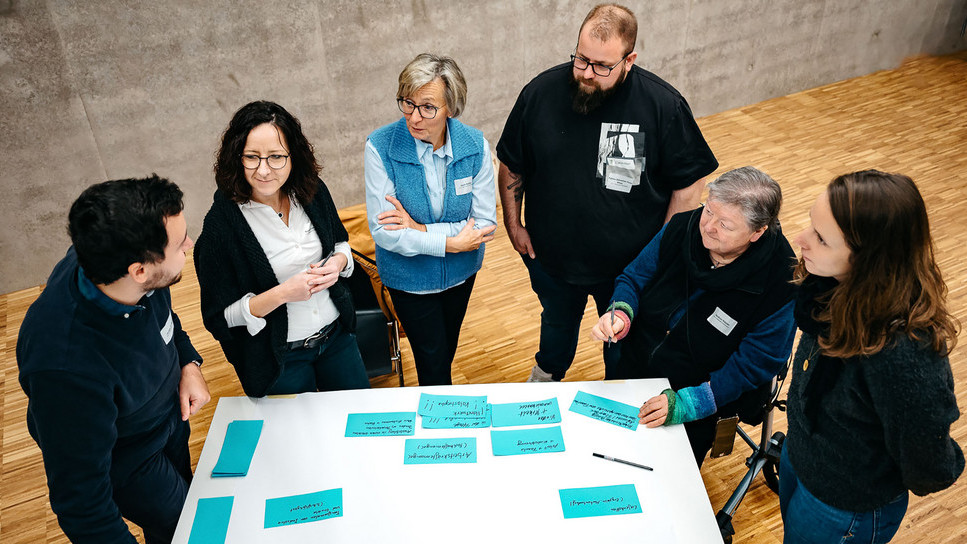Citizens' dialogues on "Space for tomorrow"

In 2023, the Baden-Württemberg Ministry for Regional Development and Housing invited randomly selected citizens from over 120 municipalities to participate in the creation of the new regional development plan. Almost 300 people contributed their questions, ideas and demands in citizens' dialogues.
How much space do we need for recreation, housing, business and the energy transition? How far can we travel to school, the hospital or the supermarket? What means of transport can we use to get there? And fundamentally: How do we want to live in the city and in the countryside in the future? The Ministry of Regional Development and Housing wants to find answers to these and other questions with the new regional development plan (LEP) under the working title "Space for tomorrow".
In order to get to know the views of the citizens and take them into account in the best possible way, 122 municipalities in Baden-Württemberg were randomly selected from five size categories ranging from villages to large cities. Their population registers were then used for the random selection of 20,0000 citizens. Around 1,200 of them registered their interest, 400 were selected for participation on the basis of socio-demographic criteria and almost 300 people actually took part. This elaborate procedure was very important to the Ministry of Regional Development and Housing in order to represent as broad a spectrum of the population as possible and incorporate a variety of perspectives.
Key areas of action discussed
At a digital kick-off event at the beginning of November, the ministry informed participants about the main features of regional planning and the process for creating the new regional development plan and obtained an initial picture of public opinion. Three quarters of the participating citizens stated that they were generally satisfied with life in their region. The new regional development plan should help to ensure that high satisfaction levels are also achieved in the future.
Around 70 citizens took part in four citizens' dialogues in November and December: in the Haus der Wirtschaft Karlsruhe, in the Donauhallen Donaueschingen, on the Sigmaringen Innovation Campus and on the Sontheim Campus of Heilbronn University. In interactive formats and moderated working groups, they discussed the central fields of action of the state development plan: Living reliably well in urban and rural areas, strengthening the economy and securing prosperity as well as protecting open spaces and adapting to climate change. They formulated concrete demands as impulses for the revision of the state development plan - for example, they spoke out in favour of upgrading or renaturing sealed areas and creating living space by closing gaps between buildings, vacancy management and new housing concepts.
What happens next?
The results and concerns identified will be incorporated into the ongoing reorganisation process. They will be presented to the mayors and district administrators in regional dialogues in February and March 2024. And in spring 2024, individual citizens will take part in thematic dialogues with experts in order to personally report on the citizen dialogues as "ambassadors". The second round of citizens' dialogues will then start in autumn 2024. At a later date, all interested parties from Baden-Württemberg will be able to contribute their concerns to the planning process at Landesentwicklung BW.
Read more: Regional Development Plan Baden-Württemberg